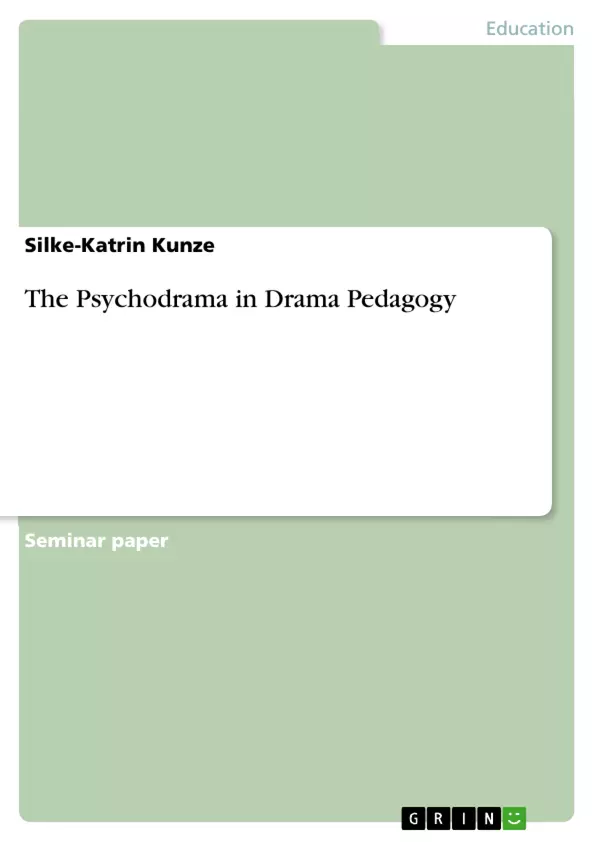This paper arose from the course „Drama Techniques“ and treats the “Genres of Drama” as much as “Drama Games”, “Drama Pedagogy”, “Psychodramaturgics”, “Psychodrama” and “Instruments”. The focus is then put on “Protagonist-Centered Psychodrama” as well as on “Group-Centered Psychodrama”. For the English language an English example is next, followed by a final evaluation and the bibliography.
Inhaltsverzeichnis (Table of Contents)
- Genres of Drama
- Drama Games
- Drama Pedagogy
- Psychodramaturgics
- Psychodrama
- Instruments
- Protagonist-Centered Psychodrama
- Group-Centered Psychodrama
- English Example
- Finale
Zielsetzung und Themenschwerpunkte (Objectives and Key Themes)
This work aims to explore the application of drama games and techniques in educational settings. It seeks to demonstrate how these methods can be effectively utilized to achieve various learning objectives and enhance students' engagement, creativity, and language acquisition.
- The use of drama games in education
- The benefits of drama games for language learning
- The importance of incorporating physical, emotional, and cognitive aspects in drama-based learning
- The connection between acting and language learning
- The role of drama pedagogy in fostering creativity and self-expression
Zusammenfassung der Kapitel (Chapter Summaries)
- Genres of Drama: This chapter introduces the concept of drama games and their various categories and subcategories. It explores different types of drama games, such as figure theater, simulation, and role play, and provides examples of their potential applications in educational settings.
- Drama Games: The chapter delves deeper into the specificities of drama games, highlighting their potential for engaging students in active learning. It emphasizes the importance of aligning specific drama games with suitable subject matter, enabling a dynamic learning experience.
- Drama Pedagogy: This chapter explores the theoretical framework of drama pedagogy, emphasizing its focus on utilizing theater techniques for educational purposes. It examines the multiple dimensions of learning that are encompassed within drama pedagogy, including physical, aesthetic, emotional, and cognitive aspects.
Schlüsselwörter (Keywords)
This work primarily focuses on the concepts of drama games, drama techniques, drama pedagogy, and their application in language learning. It examines the benefits of using these methods to enhance student engagement, creativity, and language acquisition, particularly within educational settings.
Frequently Asked Questions
What is the difference between protagonist-centered and group-centered psychodrama?
Protagonist-centered psychodrama focuses on the individual's personal story, while group-centered psychodrama emphasizes the dynamics and collective experiences of the entire group.
How can drama games benefit language learning?
Drama games engage students physically, emotionally, and cognitively, making language acquisition more dynamic and helping students practice communication in a creative context.
What are the key instruments used in drama pedagogy?
The instruments include various techniques such as role play, simulation, figure theater, and specific drama games tailored to educational objectives.
What is "Psychodramaturgics"?
Psychodramaturgics refers to the application of dramatic structure and techniques to psychological exploration and educational development.
Is drama pedagogy only about acting?
No, it is a theoretical framework that uses theater techniques for broader educational purposes, fostering self-expression, creativity, and aesthetic understanding.
- Quote paper
- Silke-Katrin Kunze (Author), 2001, The Psychodrama in Drama Pedagogy, Munich, GRIN Verlag, https://www.grin.com/document/15325



